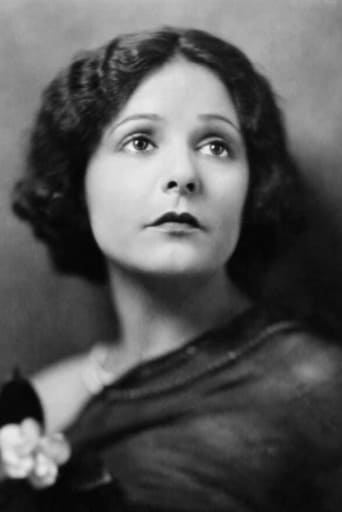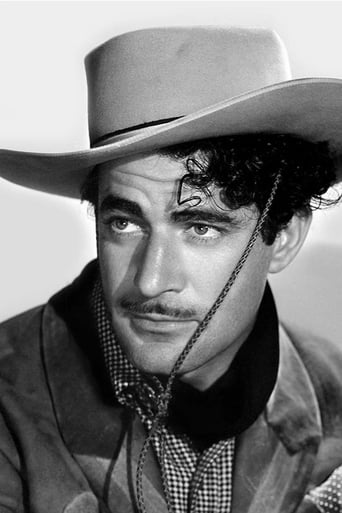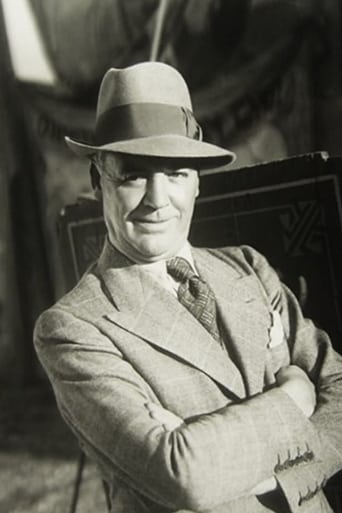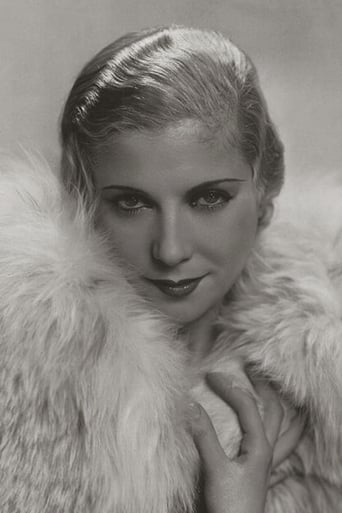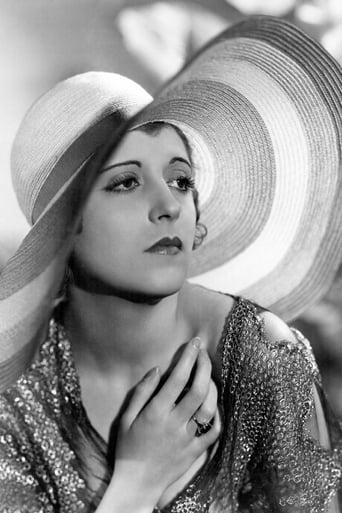SmugKitZine
Tied for the best movie I have ever seen
Tetrady
not as good as all the hype
Roy Hart
If you're interested in the topic at hand, you should just watch it and judge yourself because the reviews have gone very biased by people that didn't even watch it and just hate (or love) the creator. I liked it, it was well written, narrated, and directed and it was about a topic that interests me.
Marva-nova
Amazing worth wacthing. So good. Biased but well made with many good points.
MissSimonetta
New York Nights (1929) is no classic or even worth a repeat watching for the average movie-goer, but it does not deserve the toxic reputation it has amassed since its release.I'm not a terribly big Norma Talmadge fan; she's a competent actress with a deep, powerful voice. For some reasons, rumors of her possessing a shrill Brooklyn accent have lingered for years, no doubt due to the claim that she was the basis for the unpleasant voice of Lina Lamont, the villainess of Singin' in the Rain, a movie which is not a terribly accurate depiction of the silent to sound transition to begin with, though many seem to believe so. Nonetheless, Talmadge is solid as the heartbroken chorus girl. The rest of the cast is fine. William Cameron Menzies's art direction is great and the cinematography is pretty good too. The plot is hokum, but it's entertaining while you're watching the picture.I'd wager Talmadge's fall from grace was not caused by an inability to exist in sound, but by the cultural shift brought on by the Great Depression. Hard-nosed dames and working girls struggling to survive were more in vogue than the types Norma tended to essay during her 1910s/1920s heyday. Up and comers like Joan Crawford, possessing different images and fresh faces, held more appeal for audiences.As the Buddhists say, times are always changing. Talmadge's day had passed on by. At least she retired a wealthy woman; as her sister Constance is said to have told her, the critics can't mess with those trust funds, honey!
kidboots
"New York Nights" was one of a sizable group of straight dramas whose story was set back stage to feed (in 1929) the public's ever increasing appetite for anything connected with Broadway. Norma Talmadge had built her acting reputation on "sobs and smiles" usually as the star in spectacular costume dramas so any speaking voice she had, unless it was a duchess's, would have sorely disappointed. But would people really have been let down because Norma didn't speak in a "lah de dah" accent, after all she was playing a struggling chorus girl, Jill, who along with her husband Fred (Gilbert Roland) is desperately trying to find fame on the Great White Way.Based on the play "Tin Pan Alley" that starred Claudette Colbert and at 69 performances was hardly a success, transferred to films with a story as exciting as an empty street. This is a "behind the scenes" story but without the heartache and emotion and you don't get much singing or dancing except for the dreary "A Year From Today" which is played constantly because everyone thinks it will be a big hit - of course!! There is also a medley of performers, Al "Rubberlegs" Norman and a pair of tappers at the wild party. Fred is a bit of a ne'er do well who misses Jill's birthday because he goes on a bender - and then lies about it!! Norma is given a big emotional scene where she finishes up with "I'm going out to get MY happiness" before hitting the New York night spots with racketeer Joe Prividi who acts more and more crazy as the film progresses. Jill is happy to kick up her heels but when she finds Fred in a night court picked up for vagrancy they decide to give their marriage another go - even though she is scared of what Joe will do!!Mary Doran (mis-spelt as Koran in the credits) plays the usual trouble making chorus girl initially eager to come between Jill and Fred but now just as keen to fall in with the psychotic Joe as he plots revenge. Everything happens at the end - Joe orders his goons to stop the happy couple from boarding the train but things go wrong and Fred finds himself in a showdown with Joe on a fast moving express!!I am usually quick to embrace any early talkie but I can't get keen on this one. I disagree with the reviewer who pans Gilbert Roland's performance - I mean he is playing a weak man who in the scene where he lies to Jill, there are indications that it has happened before and this is the last straw. Norma Talmadge was okay, she "grand dames" it in her big emotional scene and while again I don't agree with the reviewer who commented on Norma's looks, I think she looks her age and not like an ambitious chorus girl, hungry for success. It would have been better with Claudette in the main role, she would have brought youth and vigour to the part. One actress who would have lifted the film if she had been given more to do was Lilyan Tashman. Her witty scenes were the film's highlight.
anches-725-976306
It is difficult for me to mark this picture as the copy I have is of very poor quality in visual and sound. I have seen Norma Talmadge in "DuBarry" and on the evidence of these two films, it certainly was not her voice that ended her career. I think it was simply a matter of her increasing age and weight. Apparently she was 34/35, but at times looks more like 50 and there is clearly a thickening of the neckline and Queen Mothering of the upper arms. A previous reviewer has mentioned the arrival of a new set of younger faces at this time (Joan Blondell and Jean Harlow, for instance),but ironically, only a couple of years after Talmadge's retirement, the big new star was a forty year old, overweight woman with just the type of accent which was supposed to have ended Norma's career, namely, Mae West. The young Gilbert Roland has very much the appearance of his namesake, John Gilbert and the same Latin charm as his friend and fellow Mexican, Ramon Novarro. As is to be expected, the film is tied down by the static microphone, but not as obviously as, say, "Lights of New York". Sadly, my copy is shorn of several minutes; there is one complete song and some musical snippets in the party scene but no sign of Al Jolson in a cameo role.From what I see, however, the film had potential which, somehow, just didn't come to fruition. Returning to the matter of "Lights of New York", not only do these films share a similar title, but even the endings are not a million miles from each other!
calvinnme
This was silent drama star Norma Talmadge's talkie debut, and it flopped at the box office. However, for the life of me, I cannot figure out why. Legend has it that Singin in the Rain's Lena Lamont was modeled after Norma, but I have to tell you that I really couldn't detect much of a New York accent in her voice, and her speaking was perfectly fine. She also seemed to understand how to integrate speaking and acting into a cohesive whole. Gilbert Roland was a bit hammy, but if you look at his performances just a couple of years later he improved very rapidly. In fact, the worst performance here - and it's really not that bad - is John Wray as the gangster that is after Norma's character. He plays it way over the top yet he had plenty of roles in talking films for years to come.The story is pretty routine - Jill Deverne (Norma Talmadge)is married to Fred (Gilbert Roland), a struggling songwriter. Their domestic happiness is threatened by a gangster who is interested in Norma and by a chorus girl who is interested in Fred. Lilyan Tashman plays Jill's friend and does a great job with the catty lines as she stands up for Jill.The only thing I can figure about the original failure of this film is that people had a certain idea about their silent stars and, for the most part, giving them a voice just took away the magic and made them seek out new faces - Cagney, Blondell, Tracy, and Hepburn among others. Very few weathered the transition and Norma Talmadge was among the many casualties. If you're a fan of the early talkies I recommend you check this one out if you get the chance. It's a rare opportunity to see Norma Talmadge in a film since so very few of her silent films survive. That's too bad since she was one of the most popular dramatic actresses of the silent era.
